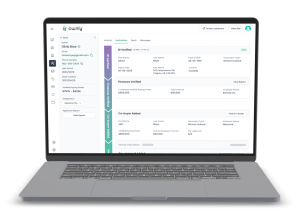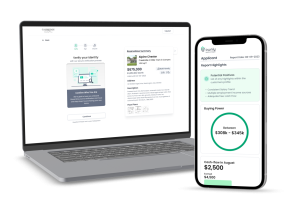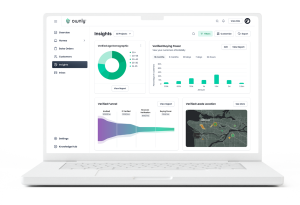In today’s competitive real estate market, understanding your home buyer isn’t just an advantage—it’s essential. With the rise of digital platforms and e-commerce solutions like Ownly shaping the landscape, home builders must pivot to customer-centric strategies that go beyond traditional sales tactics. This shift demands a robust Customer Relationship Management (CRM) system tailored to the unique needs of the real estate sector. Let’s explore how the right CRM solutions can foster deeper connections with potential buyers, ensuring your business not only survives but thrives in the digital age.
The Evolution of Home Buyer Expectations
Gone are the days when potential home buyers would patiently browse through print brochures or visit multiple sales centers. In the digital era, consumers expect to find all the necessary information online and make most of their purchasing decisions before they even step foot into a model home. They are looking for speed, transparency, and efficiency in every interaction. This paradigm shift means that home builders need to adopt new methods to engage with clients effectively and meet their evolving expectations.
Why CRM?
At its core, a CRM system helps businesses manage relationships and interactions with customers and potential customers. In the context of home building, this means capturing every detail from initial contact to final sale and beyond. A well-integrated CRM solution provides several advantages:
Centralized Information
A CRM system serves as a single source of truth about your prospects and customers. It consolidates data from various touchpoints—website visits, email exchanges, buying power, and model interests—into a comprehensive profile. This centralized information allows sales teams to tailor their approaches based on specific customer needs and preferences, which can lead to higher conversion rates.
Enhanced Customer Segmentation
Not all home buyers are the same. A robust CRM system can segment customers based on various criteria such as demographic details, behavior patterns, purchasing power, and more. This segmentation enables more targeted marketing campaigns and personalized follow-ups, significantly improving the effectiveness of your marketing efforts.
Improved Customer Service
With instant access to a customer’s history and current preferences, sales representatives can provide more accurate and timely responses. Whether it’s addressing concerns or providing updates about new developments, a CRM system equips your team with the tools to enhance service quality and customer satisfaction.
Analytics and Insights
Beyond managing relationships, CRM systems offer powerful analytics tools that provide insights into customer behaviors and sales trends. These insights can guide strategic decisions, from developing new properties to altering marketing tactics. Understanding what drives your customers helps in crafting compelling offers that align with their desires and expectations.
Choosing the Right CRM for Real Estate
When selecting a CRM for your home building business, consider the following factors:
– Integration Capabilities: The CRM should seamlessly integrate with other tools you use, such as marketing automation platforms. This integration ensures that all systems work together harmoniously, enhancing efficiency and reducing errors.
– Customizability: Each real estate market is unique, and so are your business needs. A customizable CRM can be tailored to fit the specific requirements of your sales process and customer interactions.
– Scalability: As your business grows, so does your database. Choose a CRM that can scale with your business, handling an increasing amount of data and complexity without compromising performance.
– User-Friendliness: Ultimately, the effectiveness of a CRM system boils down to how comfortably your team can use it. Opt for a solution that offers an intuitive interface and straightforward functionality.
The Future Is Now
Embracing a CRM solution tailored for real estate isn’t just about keeping up with technological advances—it’s about being a leader in a customer-first market. By investing in the right CRM, you empower your business to build better relationships, understand buyer needs more deeply, and deliver exceptional value that sets you apart in the crowded marketplace.
The era of the “hard sell” is over. Today, it’s all about making meaningful connections and understanding your buyer’s journey from the first click to the final handshake. With a solid CRM strategy, you’re not just selling homes—you’re building lasting relationships.





